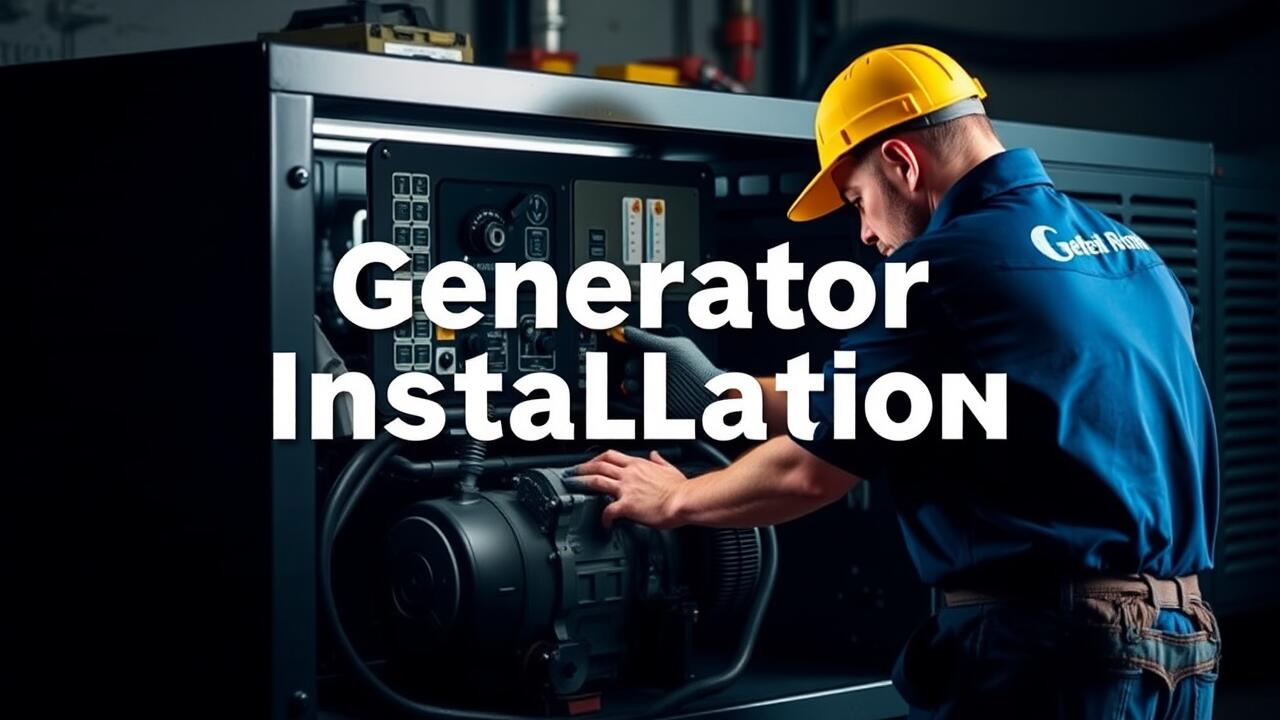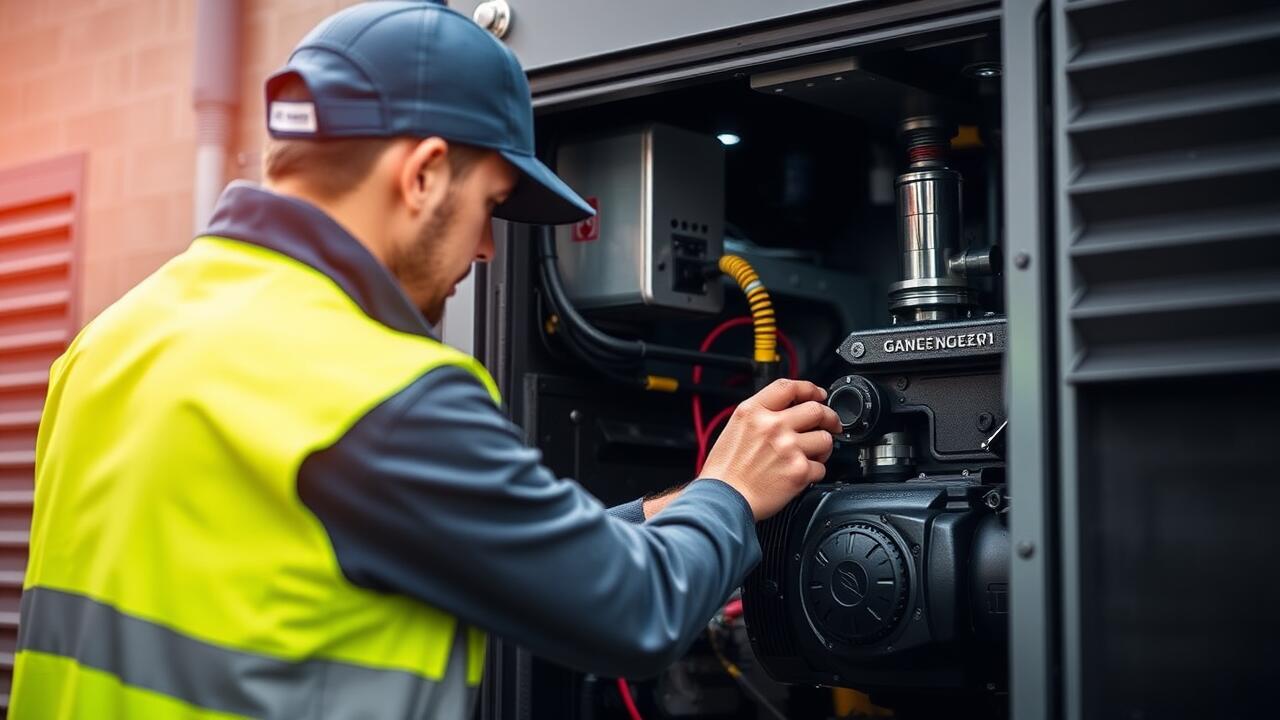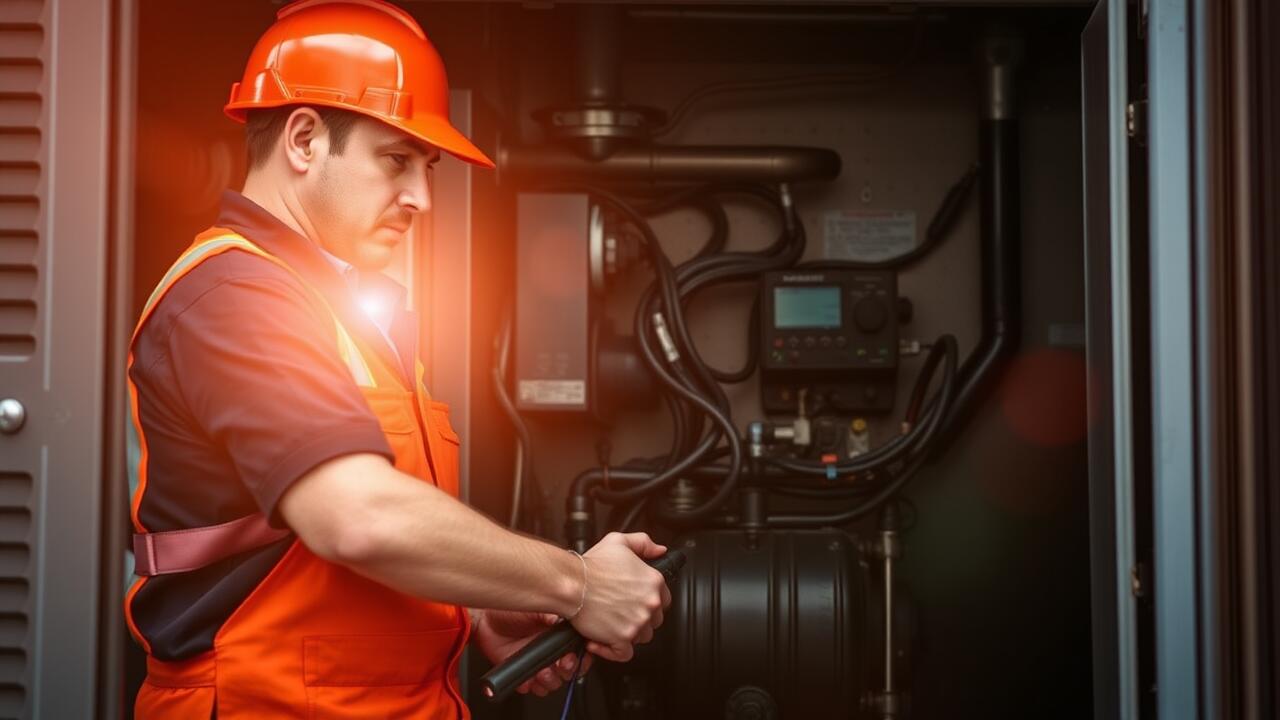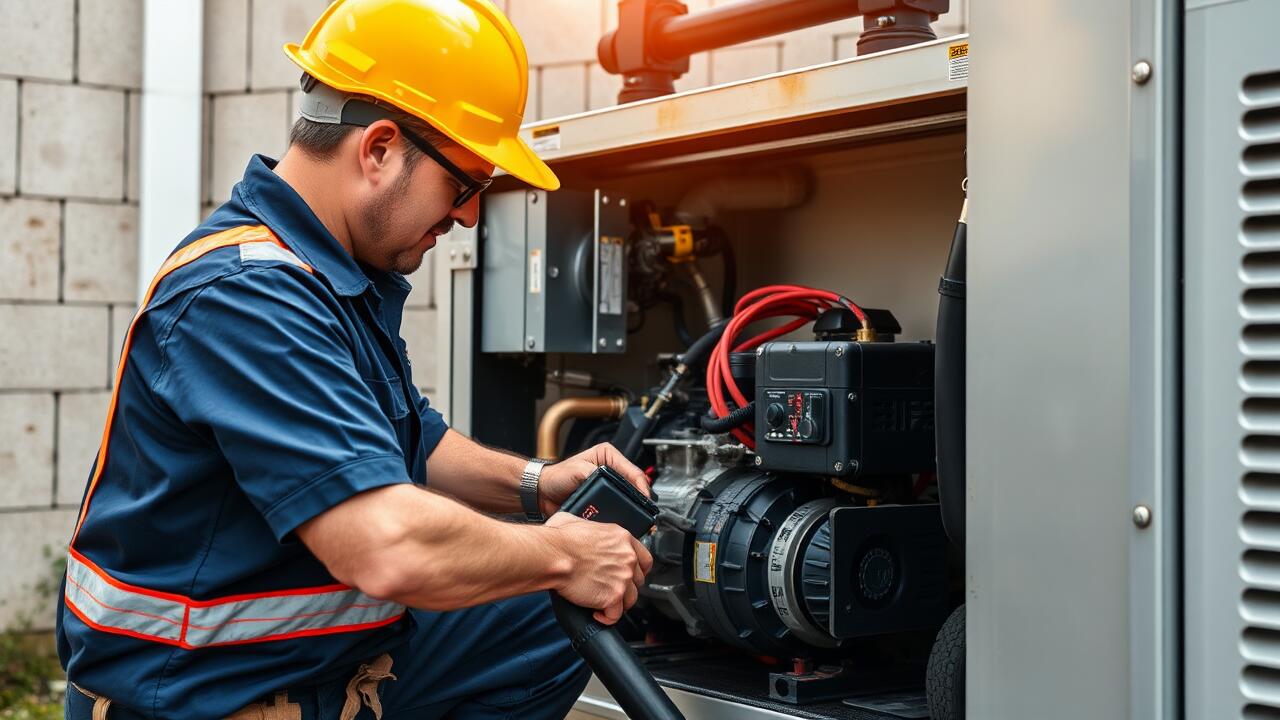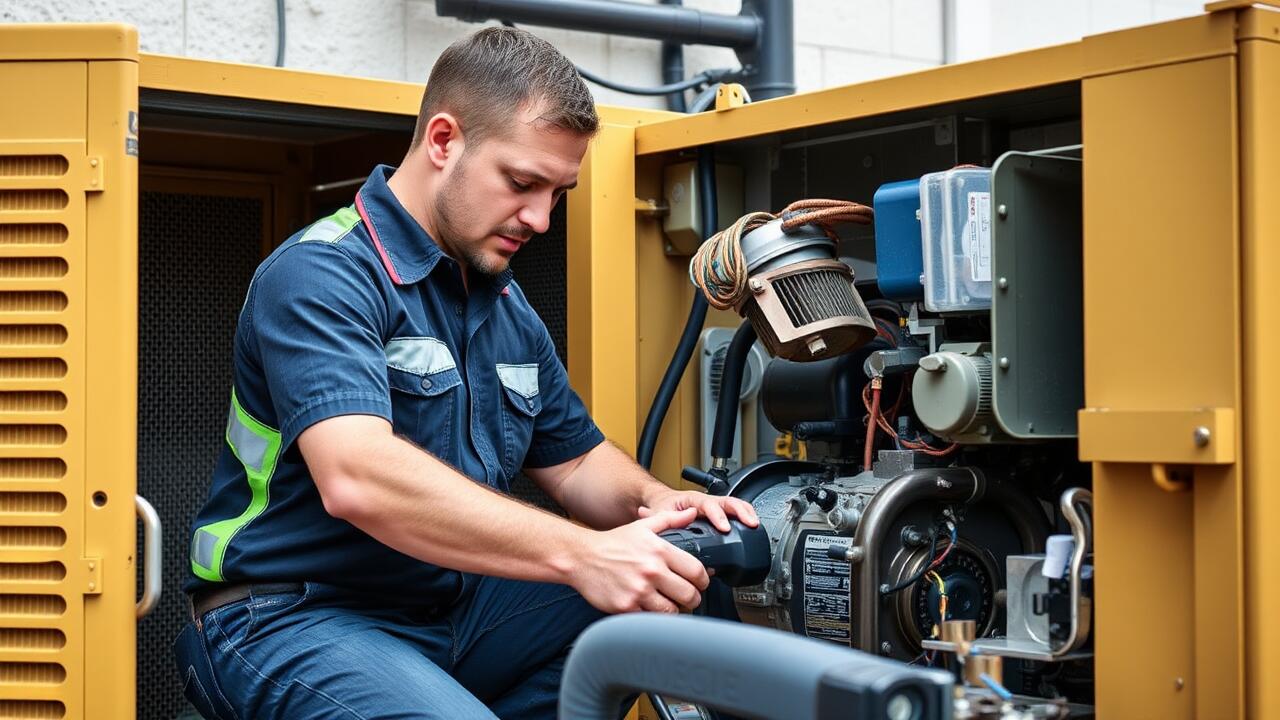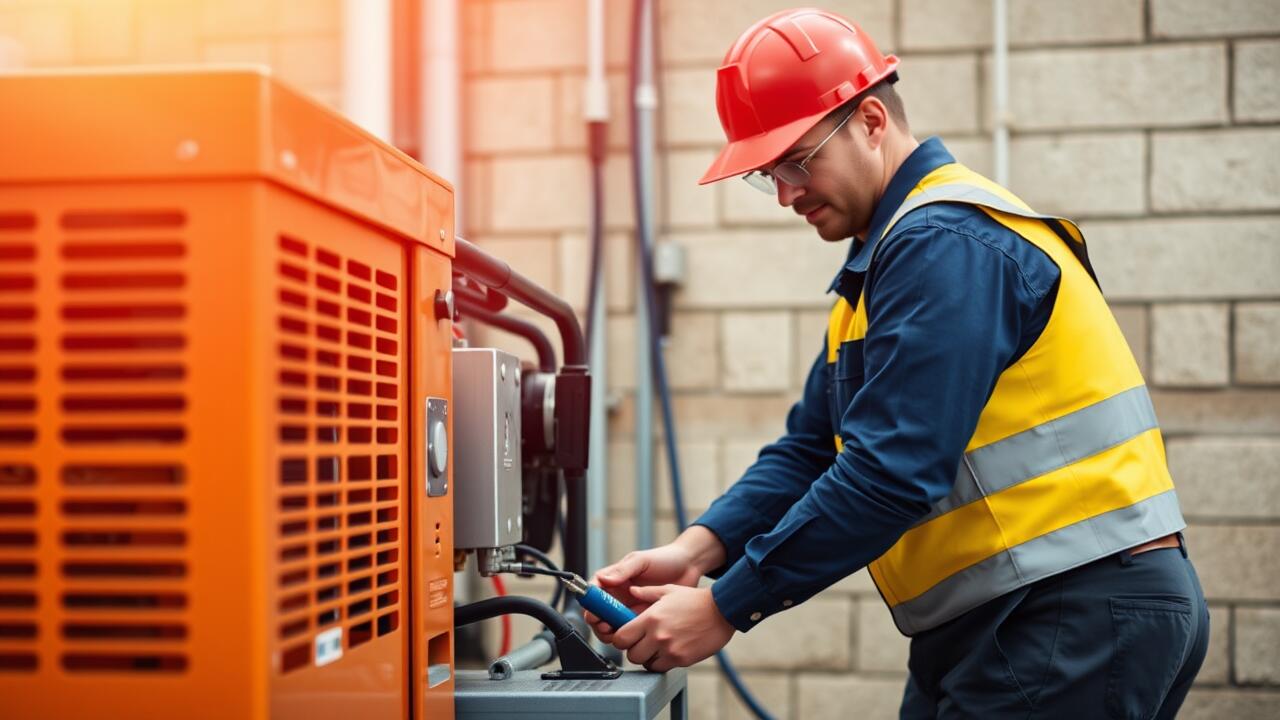
Troubleshooting Common Issues
Troubleshooting common issues with gasoline generators involves a systematic approach to identifying problems. Start by checking the fuel supply; generators often fail to start due to an empty tank or fuel that has gone stale. Ensure that the fuel shutoff valve is open and inspect the fuel lines for clogs or leaks. Additionally, examine the spark plug for signs of wear or carbon buildup, as a faulty spark plug can prevent the engine from starting or running smoothly. Regular maintenance can help avoid these issues, especially when planning for Generator Installation in Spring Branch West, Houston.
Another common issue arises when the generator produces power inconsistently or not at all. In this case, inspect the circuit breakers and fuses. A tripped breaker may indicate overloading or short circuits. If the generator runs but doesn't seem to deliver sufficient power, consider checking the load capacity and ensure that the appliances connected do not exceed the generator's output rating. Familiarizing yourself with these basic troubleshooting steps can save time and frustration during critical moments.
How to Diagnose Generator Problems
When diagnosing generator problems, it is crucial to begin by observing the generator’s behavior and performance. Look for any warning lights or unusual sounds that may indicate an issue. Check the fuel level to ensure it is adequately filled, as a low fuel supply can cause operational failures. Additionally, inspect the oil levels and confirm that the generator has not shut down due to a lack of lubrication. These preliminary checks can often reveal simple problems that are easy to fix.
If the generator appears to be malfunctioning despite proper fuel and oil levels, further investigation is necessary. Start by examining the circuit breakers and fuses to see if any have tripped or blown. Testing the spark plug is also essential; a worn or dirty spark plug can prevent the generator from starting. For those in need of professional assistance, considering Generator Installation in Spring Branch West, Houston, may provide the expertise required to effectively diagnose and resolve persistent issues.
Understanding Generator Load Capacity
Understanding the load capacity of a gasoline generator is crucial for optimal performance. Load capacity refers to the maximum amount of electrical power the generator can supply while operating efficiently. Each generator has a specified wattage rating that denotes how much power it can produce. Exceeding this capacity can lead to increased wear and tear on the machine, and in severe cases, it may cause generator failure. Proper calculations of your power needs will help you avoid these pitfalls and ensure reliable operation.
When considering generator installation in Spring Branch West, Houston, it’s essential to assess the appliances and tools you intend to power. This assessment includes determining the starting and running wattages of each device. Equipment like refrigerators and air conditioners require higher starting watts for a brief period, while lights and small electronics draw less. Understanding these requirements will guide you in selecting a generator with the appropriate load capacity, ensuring that it can handle your specific demands without compromising its longevity or performance.
Calculating Power Needs
When calculating power needs for a gasoline generator, it is essential to determine the total wattage required by the devices you plan to run. This involves listing all appliances, tools, and equipment that may be used simultaneously. Each item will have a specific starting and running wattage, which can typically be found on the product label or in the manual. Paying attention to surge wattage is crucial, as some devices require more power to start than to operate.
Once you have compiled the necessary wattage information, add the running wattages of each device together to determine the minimum continuous wattage needed from the generator. Include additional capacity to accommodate startup surges. For those planning generator installation in Spring Branch West, Houston, it’s also wise to leave a buffer for future power needs. This strategic approach ensures that the generator can handle the load efficiently without overloading, leading to better performance and longevity.
Noise Reduction Techniques
Noise reduction techniques for gasoline generators are essential for maintaining a peaceful environment while ensuring adequate power supply. Sound enclosures can significantly mitigate noise levels during operation. These enclosures are designed to fit around the generator and absorb sound waves, often made with sound-absorbing materials. Additionally, placing the generator on a vibration-absorbent pad can further reduce noise transmitted through the ground.
Another practical approach is to strategically position the generator during Generator Installation in Spring Branch West, Houston. Locating the unit away from high-traffic areas or near natural barriers like trees or shrubs can help block sound from reaching living spaces. Utilizing quieter models or those specifically designed for reduced noise output is also advisable, as technology continues to evolve, leading to improved efficiency and lower operating volumes.
Options for Quieter Operation
To achieve quieter operation of gasoline generators, consider investing in soundproof enclosures designed specifically for outdoor use. These enclosures can significantly dampen noise levels while protecting the generator from the elements. Proper ventilation is crucial to maintain safe operating temperatures. Selecting models designed with built-in noise reduction features can also help minimize sound output.
Another effective option for quieter use is placing the generator on vibration-absorbing pads or surfaces, which can reduce the transmission of noise through the ground. Landscaping elements such as hedges or fences may offer additional sound barriers, especially when combined with strategic placement. When planning for Generator Installation in Spring Branch West, Houston, evaluate these options to enhance user comfort and neighborhood relations.
FAQS
What are the common issues that can occur with gasoline generators?
Common issues include difficulty starting, inconsistent power output, and excessive noise. Regular maintenance and troubleshooting can help address these problems.
How can I diagnose generator problems effectively?
To diagnose generator problems, start by checking fuel levels, inspecting spark plugs, and examining the electrical connections. Refer to the user manual for specific troubleshooting steps.
What does generator load capacity mean?
Generator load capacity refers to the maximum amount of electrical power that a generator can supply to connected devices. It's essential to understand this to avoid overloading the generator.
How do I calculate my power needs for a generator?
To calculate your power needs, add up the wattage of all devices you plan to connect to the generator. Use the starting wattage for appliances that require a surge of power when starting.
What are some effective noise reduction techniques for gasoline generators?
Effective noise reduction techniques include placing the generator on a soft mat, using soundproof enclosures, and choosing generators specifically designed for quieter operation.
